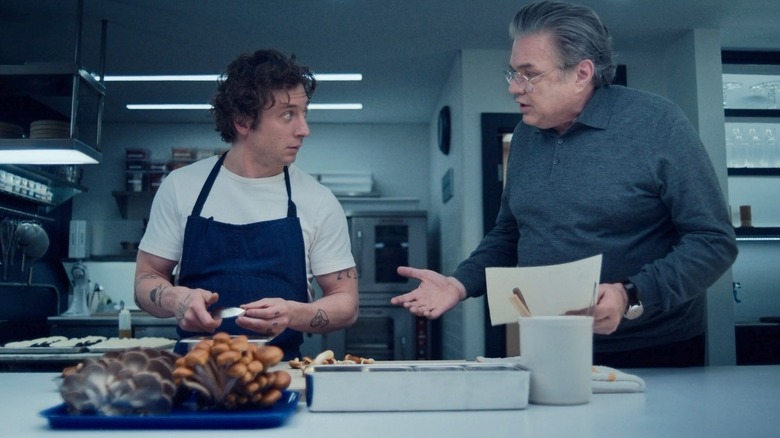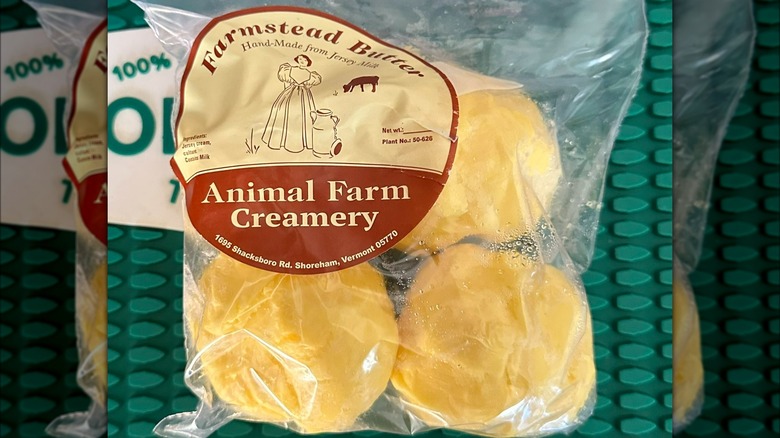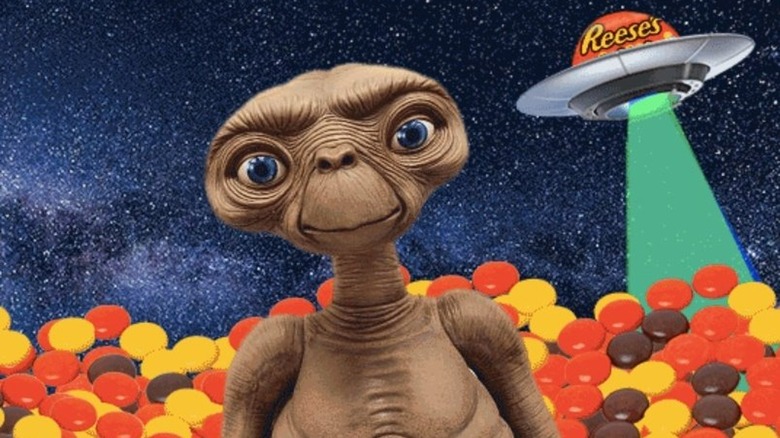Vermont's Animal Farm Creamery Was In On The Joke Long Before The Bear
The hit television series "The Bear" has been introducing audiences to some of the under-celebrated tools of the trade in professional kitchens for three seasons now. From Carmy's Japanese steel knife showcased in Season 1 to pedestrian C-fold towels in Season 3, product placement plays an integral role throughout the series. However, haute cuisine is the show's main attraction, and the spotlight often shines on the variety of lavish components used to whip up the chef's culinary masterpieces. After episodes highlighting extravagant culinary components like bottarga and soubise, some viewers were thrown for a loop when the term "Orwellian butter" was tossed into the mix.
Uncle Jimmy, the fledgling restaurant's financial backer, grills Carmy about operational costs and nearly has a heart attack when he comes across an $11,268 bill for butter. Carmy shrugs off his uncle's concerns by simply stating that it's Orwellian. The nod to George Orwell's 1945 novella "Animal Farm" wasn't lost on many, including the Animal Farm Creamery, which produces the dystopian spread.
Founded in 2000 by Diane St. Clair, the Animal Farm Creamery derives its name from its hometown in Orwell, VT. With the milk from her 10 Jersey cows, St. Clair supplied some of the most flavorful sweet cream in existence to a select few upscale restaurants for 22 years. The cows that contribute to "Orwellian butter" have since moved to another farm seven miles away, but they are still producing milk for the new owners who continue to churn out this rare ingredient.
Animal Farm Creamery's Orwellian butter
In 2022, St. Clair sold her outfit to Ben and Hillary Haigh. On their Rolling Bale Farm in Shoreham, Vermont, they now have 13 cows that graze rotationally and make seasonal specimens of their commodity, from vivid yellow butter in the summer to a spread with high butterfat content in the winter. A personal touch contributes to the rich, creamy mouthfeel and fragrant aroma of the end product as it is churned and kneaded by hand. Customers are encouraged to enjoy the flavorful butter at room temperature within two weeks of its arrival for the freshest taste.
The butter is supplied to famed upper-echelon establishments such as The Inn at Little Washington and three-Michelin star restaurant The French Laundry — whose head chef, Thomas Keller, made a cameo appearance on the Season 3 finale of "The Bear." If you want to try some yourself, only one distributor sells the sweet cream online – Saxelby Cheesemongers. However, you'll need to fork over a fair amount of dough if you want a taste because it sells for $60 per pound, if available.
Even if you were willing to spring for the best butter you've ever tasted, it may be sold out. A wave of consumers unfamiliar with "Orwellian butter" rushed to get their hands on some soon after its mention in "The Bear." This phenomenon is far from new, with many products owing some of their financial success to promotional placement in pop culture screenings throughout the years.
Big screen mentions butter-up potential customers
Well before Uncle Jimmy's joke in "The Bear" about the kind of goat that supposedly produced this uncannily expensive butter, product placement was a prominent part of the big screen — often with big payoffs for the companies showcasing their goods. Recently, the hit Netflix series "Stranger Things" highlighted a blast from the past with Eggo waffles being featured in Season 1. Audiences learned this was Eleven's favorite food, and Eggo consequently saw a 14% increase in sales in its fourth-quarter earnings.
In 1982, Reese's Pieces gained widespread popularity after being featured in the movie "E.T." Hershey's capitalized on the opportunity to promote its then recently launched candy brand after director Steven Spielberg was supposedly turned down by Mars' M&Ms, reporting an 80% increase in profits only two weeks after the movie was released. If the nod its butter received in "The Bear" impacts Animal Farm Creamery the same way it has affected other companies traditionally, the rare dairy product may become even more expensive in the near future, or find cause to expand their humble but thriving operation.


